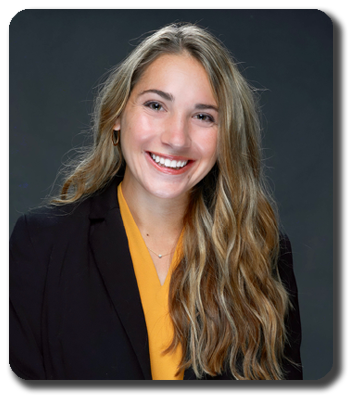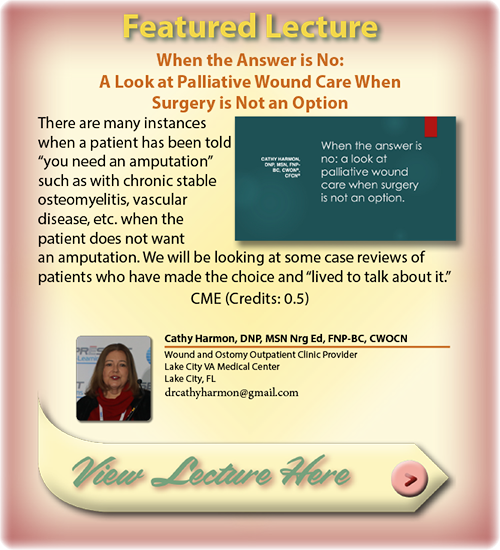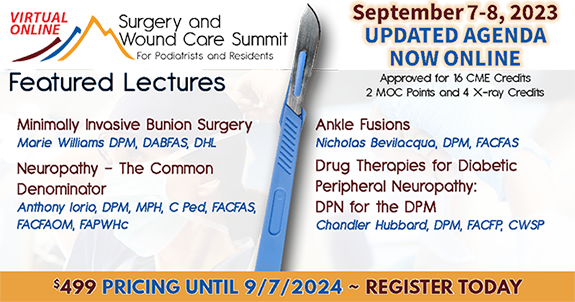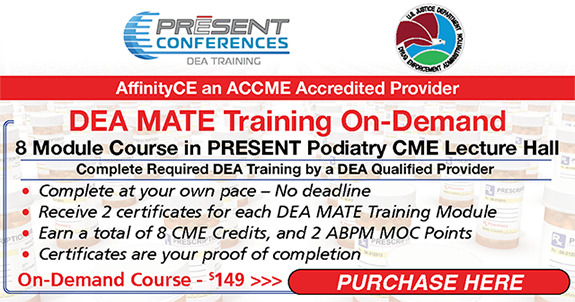
Sole Purpose 21
Mean Girls (and Boys) in Medical Training
Mean Girls (and Boys) in Medical Training

Today's topic is a bit tricky: working with difficult people in medicine. While I usually prefer to keep things positive and upbeat, it's important to acknowledge the reality that not everyone is going to like you, and sometimes there isn't a clear reason why. As the saying goes, you could be the juiciest, sweetest peach in the world, but there will always be someone who just doesn’t like peaches.
I love who I am, who I'm becoming, and the professional I've become. However, I understand that not everyone feels the same way about me, and that's okay! As a chronic people-pleaser, this can be really challenging for me personally. I want everyone to be happy, to like me, and for there to be peace among all. Unfortunately, that's not realistic.
So today, I want to discuss some of the challenges of working with difficult people and how I've managed to overcome them. Let's dive into the reality of navigating these tricky waters, finding strategies to maintain professionalism, and maybe even keeping our sense of humor intact along the way.
Preclinical
Being premed can often feel like navigating a hostile environment, thanks to the toxic culture that tends to surround it in undergrad. This pressure cooker is fueled by cutthroat competition for limited medical school spots, relentless academic demands, extracurricular overload, fear of failure, and intense peer comparison. Everyone is racing to get into medical school, achieve the highest grades, volunteer the most hours, and craft the perfect application. And let's not forget the cherry on top: the highly malignant website of the Student Doctor Network, where anxiety goes to thrive.
If you work hard enough and have a bit of luck, you get into medical school. But then, all those highly competitive and academically driven people are thrust into a lecture hall to compete for class rank. And let me tell you, it sucks.
This environment can bring out the worst in some people, leading to cheating, both real and falsely accused, exclusive study group cliques, and enough gossip to rival a soap opera. Just thinking about it gives me chills.
I naively thought that once I got into medical school, we would all be united in our mission to help others, study together, get along and that I would find “my people.” I wasn’t completely wrong. I met one of my best friends during medical school, and my study group became my people! However, finding who I meshed with best took some trial and error. My medical school friends and I never disclosed our test scores. We simply said "safe" or "not," meaning we passed or didn’t. We celebrated each other’s wins like our own and helped each other through our weaknesses (though I admit I may have had more weaknesses). When others talked about their rank or high scores, I would say I didn’t feel comfortable discussing my statistics and politely removed myself from the conversation. I found this protected my friendships and helped limit the danger of comparison.
Clinical
Clinical rotations can be a bit tougher when it comes to who you work with. I was often paired with random students from both my own school and other schools in the area. This was a great experience in that I made lots of new friends I otherwise wouldn't have met! I happily worked with some amazing PA, DO, and MD students and got to know some of my classmates much better. However, some people can be “gunners,” or students who strive to be the best under any circumstance. These individuals might do this intentionally or they simply could be so nervous they don’t realize how inconsiderate they’re being (I try to give the benefit of the doubt at first).
An example I often used in residency interviews when asked about working with difficult individuals involved a fellow student who had a unique way of showcasing their competitive spirit. This student would arrive early and lock the back door—the fastest route from the parking lot to the room where we met the attending. This forced everyone else to walk all the way around and risk being late, making this individual look good by comparison.
At first, I thought the door was just always locked in the morning. But one day, I arrived earlier than this student and discovered that the door had to be manually locked from the inside. Curiously, it was always unlocked on mornings when this student was absent. It was an odd behavior and a very awkward and infuriating realization.


Besides locking the door, this student had other charming habits: speaking over others trying to answer questions, making snide comments, skipping lunch with the group to “study more” or doing flashcards alone, and generally causing unease among the rest of us throughout the entire rotation.
On a more personal note, they wouldn’t allow me to speak Spanish with patients. If I even tried, they would come with me and speak over me. They questioned my ethnic background and claimed their multilingual skills were superior and that it was JUST what was “best for the patients”. This was particularly frustrating because I have a literal degree in the Spanish language, worked as a translator, and—oh yeah—my last name is Santiago, for goodness' sake! Okay, maybe I’m still a little mad about the jab at my linguistic ability and identity as a Mexican American, but their behavior was truly obnoxious.
It took multiple conversations with this individual from myself and other students, kindly asking for the behavior to stop before things changed. We all chose to speak to the individual directly rather than “tattle” to our attending or a resident. If I could go back in time, I would tell my past self that their behavior had NOTHING to do with me and to just ignore the odd (albeit frustrating) behavior and focus on myself. At the end of the day, I have no idea what was going on in their personal life to cause them to act that way or WHY they acted that way, and their behavior didn’t impact my grade or my learning on the rotation.
During some of my rotations, I worked alongside 4th-year MD/DO students who were doing sub-internships or residency auditions while I was a 3rd-year student on the rotation. Although I had mostly positive experiences, there was often a need to explain podiatry, podiatry schools, and my role on the rotation to others. One 4th-year ortho student stood out because they consistently spoke negatively about podiatry directly to me and would take the OR cases I was assigned, citing 4th-year priority. As a result, I either observed or was sent down to clinic.
Moreover, this student would often ask me to assist with patient translations, only to have me complete the entire history and physical examination, which they then presented as their own work. It was a frustrating experience. I was already working diligently on a demanding rotation, and this behavior made my life even more challenging. However, toward the end of the rotation, after the 4th-year students had completed their rotations, a resident confided in me that they had chosen not to interview this particular student due to their observed mistreatment of me, despite my never mentioning it to any resident.


The moral of this story is that your conduct as a student does not go unnoticed and can have consequences. While I have no doubt that this student was 100 times more stressed than I was as a 3rd year, the way you behave is always noticed.
Externships
Externships are a strange and awkward part of medical education. You’re trying to figure out if you like the program, doing your best every day, far from home, and placed with a group of students you may or may not know, all of whom potentially want to join that program. It’s a mess. My first externship was my absolute favorite because the student I was paired with was amazing—he was great to work with, and the residents were awesome. The people you work with can make a big difference. I mostly made friends, but there were a few people I knew I didn’t want to be co-residents with.
Podiatry is a small community where everyone knows everyone, so you REALLY have to be careful about what you say and do. Some residents might try to bait you into saying something negative. I was asked a few times in the OR if my class had any drama or to share details about the student coming next month. Always find something positive to say about everyone, and if you can’t, just say you don’t know them well.
Speaking poorly about someone can have serious consequences. On two occasions, both a resident and a peer informed me that another peer had spoken negatively about me when asked by an attending if they knew me. It was truly disheartening to hear. However, in both instances, their comments ended up reflecting poorly on them. Earlier in both rotations, when asked about these peers, I had only shared positive remarks. Yikes. The attending and resident both reassured me, emphasizing that my positivity was noticed and appreciated, while the negative comments had undermined the other students’ own credibility. It even went as far as a resident at another program spoke to me about the situation. This experience serves as a reminder to exercise caution and refrain from speaking negatively about others, regardless of how comfortable the setting may seem with a resident or attending.
Additionally, try to not talk poorly about a rotation. Focus on the positive aspects. I had an externship I didn’t exactly enjoy, but no one would have known because I found plenty of positive things to say and I simply didn’t rank the program when it came to match time. Additionally, try to never say anything negative about a resident; all the residents know each other, and that’s a surefire way to not get an interview. Residents talk about students, and I had multiple rotations where residents knew things about me because of their friends or old classmates who were residents I’d worked with on other rotations. Be careful and hold your tongue.


Scrub Nurses
I understand why scrub nurses might dislike students—we can mess up their tables and make their jobs harder. However, there seems to be an unusually high number of really mean orthopedic scrub nurses. Granted, there are also some incredibly lovely ones. To combat this, I always start by introducing myself and mentioning that I’ve scrubbed before. I grab my gloves and the resident’s gloves and offer to open them, but I emphasize that it’s their table and I’ll do whatever they prefer. I also mentioned that I will scrub last, help tie everyone, and can glove and gown myself if they’re busy with setup, but it’s up to them. I ask if they’re okay with me touching the Mayo stand, and if they say no, then I don’t touch it. Dealing with a mean scrub nurse can be really tough as a student. Try not to take it too personally and, most importantly, do not talk back. If they say you contaminated something or yourself, then accept it, step back, and address it accordingly. I have found that good communication goes a long way.
Attendings
This was such a challenging experience for me. The vast majority of attendings I've worked with have been amazing, but there was one attending who I was TERRIFIED of. This attending had a reputation for having a very particular OR and for not being shy to voice inadequacies amongst trainees. On one of my initial days working with them, they remarked, "It's embarrassing that you don’t even know how to use tape properly," after I had taped down the non-surgical leg. To this day, I'm uncertain how I misused the tape, but instead of correcting my mistake, the attending directed their frustration towards the resident throughout the entire case. This environment made me incredibly nervous, and I believe I fumbled through every pimp question and trembled while retracting.
I vividly recall calling my mom in tears at the time, describing this attending as the meanest person alive, only to be told to toughen up. In hindsight, while the attending's approach to the resident was harsh and intimidating, they were quite kind outside of the OR, and I did learn a lot from them.
Being a student is awkward, and I know I’ve made my fair share of mistakes (read my "Mistakes in Externship" article if you don’t believe me), but the most important thing is that you’re learning, and if you make a mistake, you learn from it. I try to remember that it’s their OR, surgeons as a whole can be extremely particular, and I am a guest. It really sucks when someone is mean in the OR and it can make answering PIMP questions nearly impossible. Try to take a step back and remember that it’s not about you, it is about learning and doing your best, and try to take the comments with a grain of salt.
In conclusion, dealing with people in general can be incredibly challenging! Medical education is extremely stressful and can bring out the worst in us. Try to remember that you never know what is going on in someone’s personal life, and there are always multiple sides to a story. Yes, I’ve had some negative experiences with staff and fellow students, but the positive experiences far outweigh the negative. There’s no other career I’d rather pursue! I’d choose WesternU for school 100 times over, and I’d choose podiatry 1,000 times over. Keep your chin up and say nice things about people!






























Comments
There are 0 comments for this article